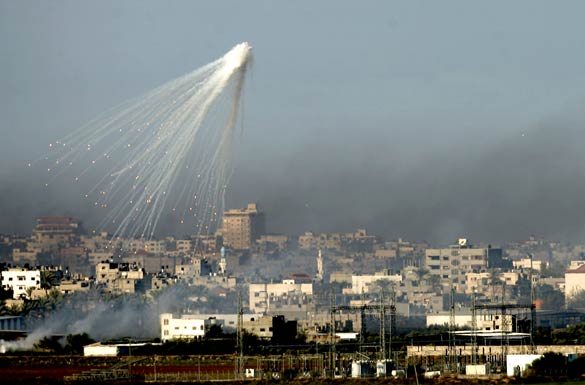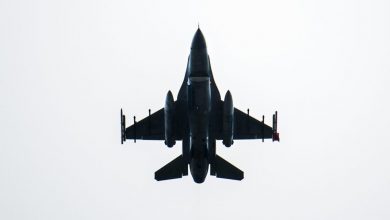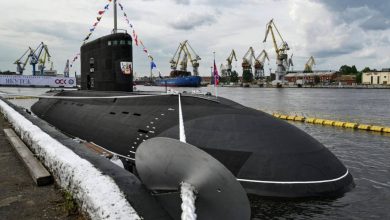Amnesty International shares proof on Israel’s use of white phosphorus in Gaza

Amnesty International published evidence Saturday about the Israeli military’s use of white phosphorus in densely populated civilian areas in the Gaza Strip.
Videos and photos verified by Amnesty International’s Crisis Evidence Laboratory show Israel used white phosphorus on the enclave it has been bombing since
M109 155 mm type howitzers can be seen in the picture of ammunition that the army stockpiled in the city of Sderot, which lies 1 kilometer (0.62 miles) from the Gaza border, where Hamas launched its Al-Aqsa Flood Operation.
Also pictured are M825 and M825A1 artillery shells labeled D528, which is the US Department of Defense Identification Code for “white phosphorus-based munitions.”
M109 howitzers that have a range of 18 to 22 kilometers, stationed in Sderot, put the northern half of the Gaza Strip within striking range of the Israeli army.
In recent days, videos have been shared on social media showing northern Gaza being hit by white phosphorus artillery shells.
Crisis Evidence Laboratory, which confirmed the images taken from different angles of the attacks on Gaza Port and nearby hotels, also shared satellite images of the attack point.
While it was recorded in the video that white phosphorus ammunition was used together with highly explosive artillery shells, it said the artillery shells released particles that produced dense white smoke when exploding in the air, and that was consistent with the use of M825 and M825A1 artillery shells.
The location of another video showing the use of phosphorus, shared on social media Oct. 11, was determined to be near the Bank of Palestine Tower.
Amnesty International is examining additional evidence about the possible use of white phosphorus in northern Israel and Lebanon.
What is white phosphorus?
The smoke of white phosphorus, which is prohibited for use in areas with dense civilian populations according to international law, can cause sudden wounds to the lungs and suffocation when inhaled.
White phosphorus, which can cause second and third-degree burns on the skin, easily catches fire when it comes into contact with oxygen. When used as a bomb, it causes fires as well as an explosive effect.
Fires caused by white phosphorus bombs can spread to large areas and can continue until the phosphorus in the area is exhausted.
It is very difficult to treat those exposed to white phosphorus, which is taken into the body through inhalation, contact or ingestion. White phosphorus sticks to surfaces and is also contagious. That is why those treating injuries caused by the bomb need to receive special training to protect themselves.
Periodic exposure to the substance can cause advanced deformation of the jaw bone and cause it to break.
White phosphorus in international law
Under the UN Convention on Conventional Weapons (CCW), aerial incendiary weapons attacks in civilian areas are prohibited.
There are no legal obstacles to using the smoke emitted by white phosphorus for purposes such as camouflaging military units in open areas.
On the other hand, discussions continue regarding whether white phosphorus should be considered a war crime due to the effects and harm it causes on people when used.
Israel has used white phosphorus before
In a report published in 2010 on the impunity for violations of the rules of war in Gaza, Human Rights Watch (HRW) said Israel used ammunition containing white phosphorus in “Operation Cast Lead” in the Gaza Strip between December 2008 and January 2009.
In the report, Israel’s use of ammunition containing white phosphorus in densely populated areas was cited as one of the policies implemented by political and military leaders that led to violations of the rules of war.
Israel-Palestine conflict
Hamas’s armed wing, Izz ad-Din al-Qassam Brigades, launched a comprehensive attack on Israel on the morning of Oct. 7, called Aqsa Flood.
While thousands of rockets were fired from Gaza towards Israel, Palestinian armed groups raided and seized the Beit Hanun-Erez Border Gate on the Gaza-Israel border.
Armed groups then entered the settlements within Israel from there, and the Israeli army launched an attack on the Gaza Strip with dozens of warplanes.
More than 3,500 people have been killed since the outbreak of the conflict on Oct. 7, including 2,215 Palestinians and 1,400 Israelis.
It was reported that 55 Palestinians have been killed and 619 people injured in attacks by Israeli forces and Jewish settlers in the West Bank.
Nine journalists in Gaza and another reporter in Lebanon have been killed.





